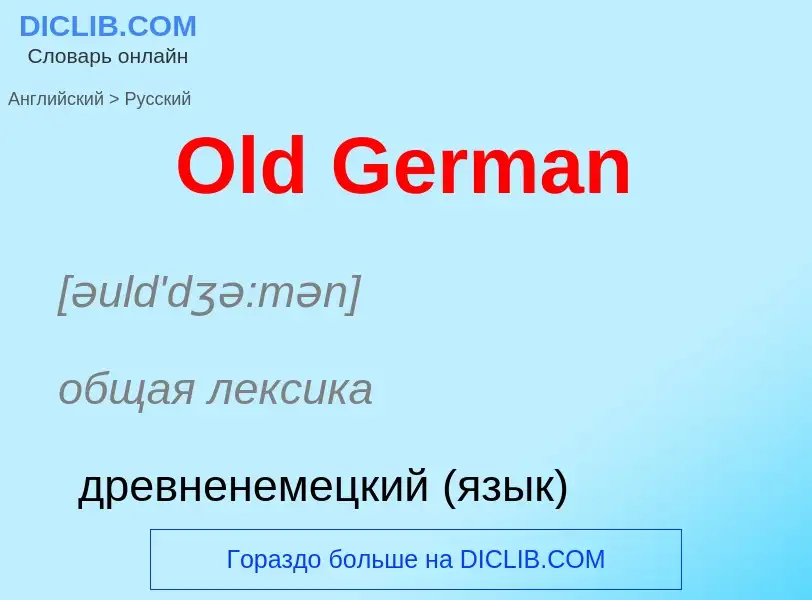Перевод и анализ слов искусственным интеллектом ChatGPT
На этой странице Вы можете получить подробный анализ слова или словосочетания, произведенный с помощью лучшей на сегодняшний день технологии искусственного интеллекта:
- как употребляется слово
- частота употребления
- используется оно чаще в устной или письменной речи
- варианты перевода слова
- примеры употребления (несколько фраз с переводом)
- этимология
Old English ‹French, High German› - перевод на русский
[əuld'dʒə:mən]
общая лексика
древненемецкий (язык)
[hai'dʒə:mən]
лингвистика
верхненемецкий язык
Определение
Википедия
.jpg?width=120)
Old High German (OHG; German: Althochdeutsch (Ahd.)) is the earliest stage of the German language, conventionally covering the period from around 500/750 to 1050. There is no standardised or supra-regional form of German at this period, and Old High German is an umbrella term for the group of continental West Germanic dialects which underwent the set of consonantal changes called the Second Sound Shift.
At the start of this period, the main dialect areas belonged to largely independent tribal kingdoms, but by 788 the conquests of Charlemagne had brought all OHG dialect areas into a single polity. The period also saw the development of a stable linguistic border between German and Gallo-Romance, later French.
The surviving OHG texts were all written in monastic scriptoria and, as a result, the overwhelming majority of them are religious in nature or, when secular, belong to the Latinate literary culture of Christianity. The earliest written texts in Old High German, glosses and interlinear translations for Latin texts, appear in the latter half of the 8th century. The importance of the church in the production of texts and the extensive missionary activity of the period have left their mark on the OHG vocabulary, with many new loans and new coinages to represent the Latin vocabulary of the church.
OHG largely preserves the synthetic inflectional system inherited from its ancestral Germanic forms, but the end of the period is marked by sound changes which disrupt these patterns of inflection, leading to the more analytic grammar of Middle High German. In syntax, the most important change was the development of new periphrastic tenses to express the future and passive.

.jpg?width=200)

![scriptoria]] and the areas of the Old High German "monastery dialects" scriptoria]] and the areas of the Old High German "monastery dialects"](https://commons.wikimedia.org/wiki/Special:FilePath/The Old High German monastery dialects and their main scriptoria.jpg?width=200)
![[[Upper German]]}} [[Upper German]]}}](https://commons.wikimedia.org/wiki/Special:FilePath/Map of German dialects (according to Wiesinger, Heeroma & König).png?width=200)
